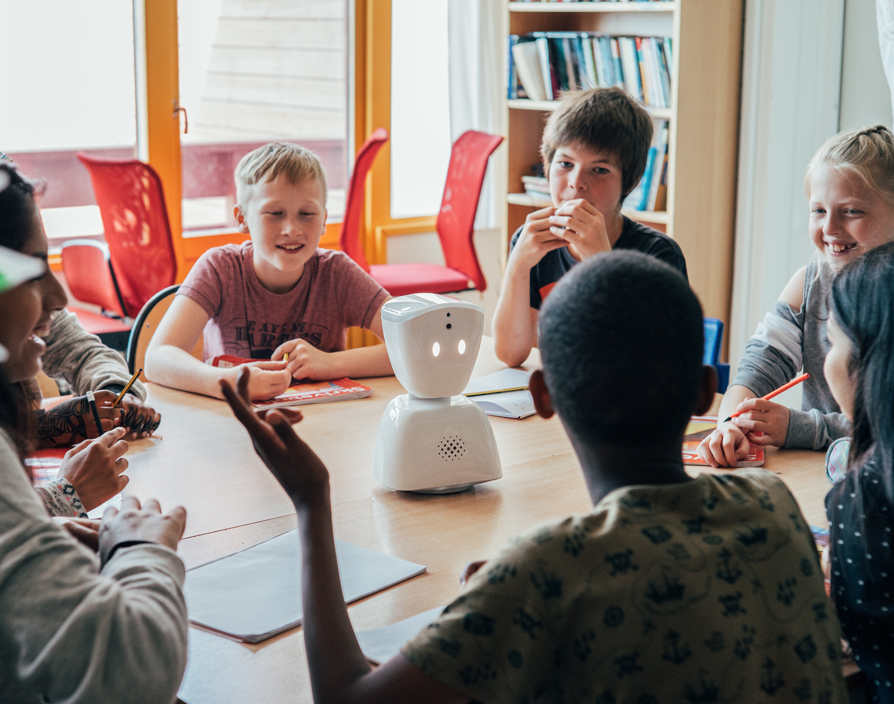Photo credit: No Isolation/Estera Kluczenko
Dying children are not part of most startups’ journeys. But No Isolation isn’t your average tech venture. Founded in 2015, the firm began life after a conversation the CEO and co-founder Karen Dolva had with one of her friends. “She’d been working as a nurse at a children’s ward in a hospital and mentioned in passing that they were miserable,” Dolva remembers. The reason was that they never saw anyone else other than hospital workers and whichever family member or friend could spare a minute to swing by the children’s ward. Fortunately, Dolva was ideally placed to do something about it. At the time she was working at the StartupLab Oslo incubator and had talked with two of her friends about launching a business. Following the conversation with her friend, the trio knew exactly what the aim of their startup should be. “No Isolation is a tech company with a very heavy impact focus,” she explains. “As our name clearly states we want to work on helping people out of loneliness, preventing loneliness and just make people happier through conversations with their loved ones.”
This is no mean task. Interestingly, in the age of Facebook and Twitter, when romantic connections seems only a Tinder swipe away, people seem more alone than ever. Nine million people feel lonely in Britain alone, according to the Red Cross. Indeed, it’s gotten so bad that the prime minister appointed Tracey Crouch as the UK’s first minister for loneliness in January, a project first envisioned by the late Jo Cox.
Given the momentous challenge at hand, it’s easy to see why No Isolation’s founding team knew they had to get their service right off the bat. To do that, the trio set out to learn everything they could to fight loneliness. “We started researching all this and seeing what actually happens to you when you’re a kid and when you get a heavy diagnosis,” she says. “Who is there for you, what kind of technology do you have access to and how do you use it? We very quickly learned that this stuff that they had didn’t solve anything.” Despite internet-birthed hyperconnectivity, hospitalised children lose out on the friendships and closeness with their classmates because they can’t contribute to the conversation. “These kids don’t really have anything to share because what they really needed to do was to participate,” says Dolva.

No Isolation’s founders Marius Aabel, Karen Dolva and Matias Doyle
Learning more about these children’s situations, the team doubled down on their efforts to make their vision a reality by raising seed money in two angel investor rounds. “The first two rounds were fairly straightforward,” she says. Not only were they aided by their own networks but it also didn’t hurt that Norway has recently made an effort to transform itself into a startup hotbed. Importantly, the Scandinavian country had the money to back up this drive. “There is a lot of money in Norway,” says Dolva. “You just have to be around and meet everyone because it is so necessary to know where that money is hidden and the agenda that comes behind the money.”
Following these capital injections, Dolva and her co-founders set out to eradicate loneliness. “We have developed a robot, a teleperson, that can go to school and that the children can control from home so they can see everything and can talk to everyone,” she explains. That way the kids can participate in the everyday life of their classmates and don’t miss out. And it didn’t take long before people outside of the Norwegian tech community noticed the startup. “It’s been quite incredible,” Dolva says. “I’ve seen quite a few startups at StartupLab [Oslo] but I never expected us to get anywhere near the traction that we’ve been getting PR-wise. People get this product and everyone understands that someone needs to help these kids.”
Part of this success is due to No Isolation being uncompromising on privacy and has always taken the opinions of the kids testing the robot under consideration. However, this has also lead to devastating side-effects on a personal level. “I think that the most challenging for all of us has been that we are working with severely ill children and quite a few of them have passed on and that’s something that you don’t expect when you start a tech company, that part of your churn is kids dying on you,” she says. But that was the reality Dolva and her co-founders faced, that every once in a while their tech would be returned to them because a child had passed on. “It’s no fun getting a robot back because someone has died,” she remembers.
Nevertheless, in the years since the launch, the company has been proven a massive success. “We’ve scaled it up so that it’s on sale in nine countries and we have offices in London, Amsterdam and Oslo,” says Dolva. But rather than resting on their laurels, No Isolation is constantly looking for ways to expand its services. In fact, the company recently soft launched a computer for the elderly. “We wanted to help them communicate with their families through the internet and to give them access to all the good things that the internet can bring,” she explains.
These efforts have not only been funded by sales but also a €2.4m seed round in 2016 and fourth round in 2017 worth €2.1m. The company is now gearing up to raise a series A round. “It will hopefully be after the summer,” she says. And there’s no secret that No Isolation plans to use that money to scale the business across the European continent. That being said, Dolva promises that growing the startup will always play second fiddle to helping people the proper way. “We’re not in a rush and we want to do it right,” she concludes. ![]()
Share via:


















































